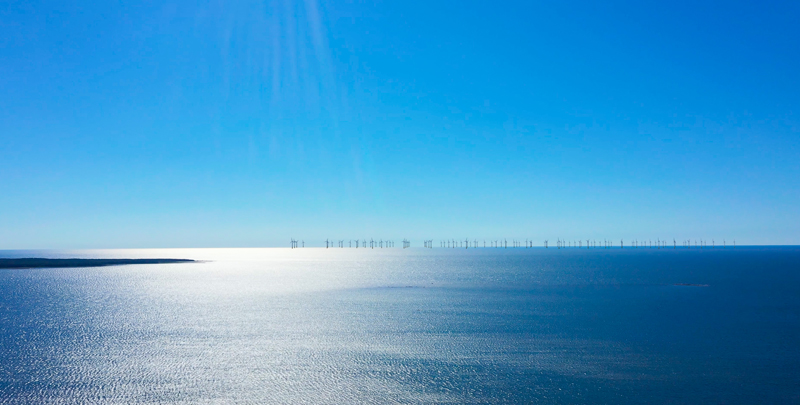Construction of offshore wind power within the Finnish exclusive economic zone – Legislative proposal in progress
Finland is defining the rules for offshore wind power construction in the exclusive economic zone. The consultation round for the Ministry of Economic Affairs and Employment’s legislative proposal ended at the beginning of July. The legislative proposal is to be discussed during the autumn and be enacted at the beginning of 2025. It would then be possible to organise competitive tendering for the EEZ during the same year.

According to the legislative proposal of the Ministry of Economic Affairs and Employment, the Government would decide on the areas of the exclusive economic zone (EEZ) and the competitive tendering of projects. The tendering process would be organised by Energy Authority.
The objective of the legislative proposal is to ensure that the rules of play for projects in territorial waters and the EEZ are as uniform as possible. Tendering for territorial water projects is organised by Metsähallitus. Metsähallitus’ mandate does not include the EEZ.
“We at Metsähallitus welcome the clarified rules for offshore wind power construction in the EEZ. Offshore wind power is developing rapidly and operators expect clarity and predictability on the market. Those interested in the projects can better assess aspects related to the location of EEZs and territorial waters,” says Markku Tuominen, Acting Director, Wind Energy, Metsähallitus Property Development.
“Offshore wind power provides zero-emission electricity on an industrial scale, something for which our western sea areas offer outstanding opportunities,” he adds.
Detailed tendering criteria to be laid down in a decree
The tendering criteria for EEZ projects would be laid down in detail in a decree. The winner would be selected on the basis of both qualitative factors and the price offered.
According to the legislative proposal, qualitative factors could include the tenderer’s financial status, experience, competence and ability to proceed with the project, the project’s environmental impacts, local acceptability, network connection, safety and security as well as items required by EU regulations. A tenderer would be selected on the basis of the price-quality ratio, so that tenderers would receive points for both the fee and qualitative factors.
The winner of the competitive tendering process would be granted the exclusive right to apply for an exploitation permit for a specific area in the EEZ.
It would also be possible for the State to charge a fee for the right to use the EEZ. With the exploitation fee, the operating environment of the EEZ would approach the regulation of territorial waters. Projects in the EEZ are not currently subject to municipal real estate tax.
Other permits in addition to exclusive rights
In the EEZ, the Act on Environmental Impact Assessment Procedure (EIA), the Environmental Protection Act, the Act on the Organisation of River Basin Management and the Marine Strategy, the Water Act and the Act on the Capture and Storage of Carbon Dioxide, along with provisions issued under these, shall apply.
The Land Use and Building Act applies only to sea area planning, so projects in the EEZ are not zoned. Offshore wind turbines are required to have a water permit in accordance with the Water Act, but they do not currently need a municipal building permit. Consequently, the provisions on safety, technical requirements for building or supervision of construction do not apply to building, either. The water permit process under the Water Act focuses on underwater construction and the impacts of the project.
Indeed, the need to take into account the technical requirements of construction and safety regulations has been identified in the legislative project. At the same time, it would also be necessary to resolve issues concerning the dismantling of wind turbines. For scheduling reasons, these provisions have not yet been included in the legislative proposal.
The application of a number of other laws in the EEZ has also been assessed in the draft law. Other laws concern, for example, environmental pollution, oil or chemical damage, fishing, hunting and nature conservation matters, and the protection of underwater cables.
The legislative proposal currently being drafted fills the regulatory vacuum of the EEZ, as existing law does not include the special features of offshore wind power and does not provide decision-makers with a framework, for example, in a situation where more than one company is interested in the same sea area.
Taxation of the EEZ also underway
The goal of Prime Minister Petteri Orpo’s Government is to make Finland a pioneer of clean energy in Europe and to multiply electricity generation in Finland. The Government’s starting point is that offshore wind power plants are to be built on market terms. The aim is to create a model that is fair and predictable with regard to project actors and works in terms of Finland’s overall interest.
The Government’s goal is that the first areas for wind power projects in the exclusive economic zone would be selected and the first tendering process launched already by the end of 2025.
At the same time, the Ministry of Finance is preparing legislation on real estate and income taxation in the EEZ with respect to investments in the Finnish EEZ.

Further information:
Markku Tuominen
Acting Director , Wind Energy, Metsähallitus Property Development
tel: +358 (0)40 673 4895, email: markku.tuominen@metsa.fi